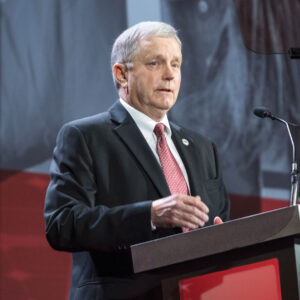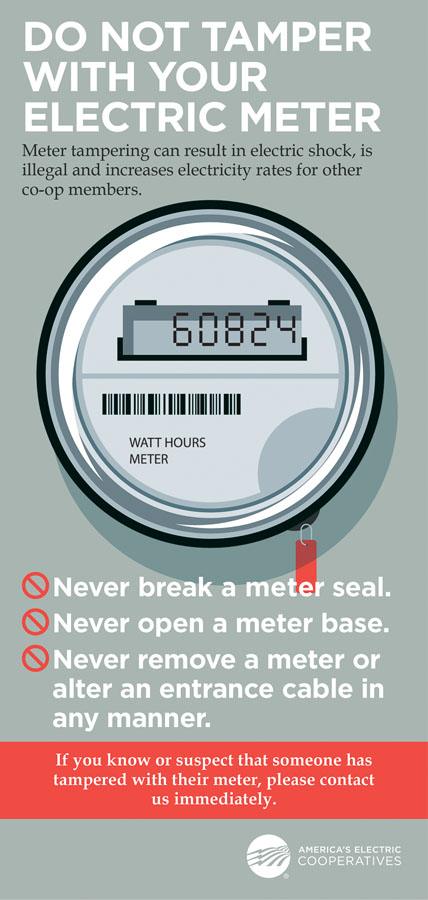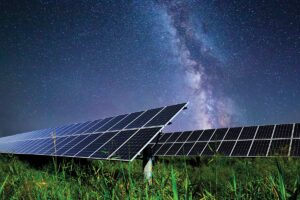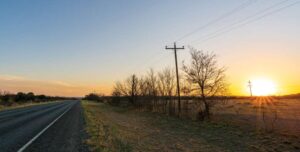
Below are excerpts of NRECA President Phil Carson’s Feb. 27 address to members at the 2018 NRECA Annual Meeting in Nashville.
The electric cooperative movement belongs to all of the people we serve today, all those we’ve served throughout history, and the millions of young people who are counting on us to make sure the cooperative will still be strong and relevant to their lives when it’s their turn to chase the American dream.
In a movement, your work never stops. There’s always some part of our operation that can be improved, and even when we aren’t creating new programs or services, there’s always maintenance to be done.
I’ve spent a lot of time thinking about leadership and talking with trusted friends and industry colleagues. One introduced me to a management philosophy called Cathedral Thinking, which takes its name from the ornate houses of worship that often took hundreds of years to complete. The majority of workers who built these magnificent structures weren’t alive to witness either the groundbreaking or the ribbon cutting. For generation after generation, workers came to the jobsite and sacrificed their bodies to the grueling task at hand. They found satisfaction in their legacy, and their work is still standing and nourishing souls.
We weren’t around for the start of the electric cooperative movement, but after a few passes of the torch, we’re now the ones entrusted to keep the movement strong.
As we build on the strong foundation we inherited, we must consider the legacy we will leave for the generation that follows us. We are experiencing a once-in-a-lifetime industry transformation, and we get to help decide what that future will be. A once-in-a-lifetime transformation is exciting, but it’s also disruptive, uncomfortable and exhausting.
My co-op in south-central Illinois is grappling with the same issues you are; issues like the onward push of distributed energy resources and the need for broadband in our communities. But when it comes to big questions that will impact our co-ops for years to come, I’m going to suggest to you that we don’t necessarily need all the answers. What we need are the right people committed to the right principles.
I’ve observed there are two key skill-sets required to meet our leadership obligations at our co-ops: stewardship and vision, and they must be in balance.
Stewards are the caretakers of the cooperative and its assets. Our co-ops are vital civic institutions, and without the services we provide, our communities will die. Stewards recognize the gravity of this mission, and bring a measured, analytical, reasoned approach to our board room discussions.
In contrast, visionaries are perhaps a bit more in tune with the needs and expectations of the average member, both what they need today and what they will need in the years to come. Visionaries like to dream about the possibilities before us, and they’re willing to take risks to try new ideas. Not change for the sake of change but change for the sake of our members.
Both roles are important, and when we get the mix right, stewards and visionaries bring out the best in each other. Stewards will challenge visionaries to carefully analyze all the variables before making a change, and visionaries will challenge stewards to consider the case for pursuing a new idea or opportunity and the risks of not acting.
Visionaries will make the case for the co-op aggressively exploring ways to bring broadband to our members because our communities need this service to survive and to grow. Stewards will speak out strongly about a legitimate business case and a careful analysis of what this means to the co-op’s financial health. Together, stewards and visionaries keep the co-op balanced, focused and strong.
I want to make sure before I hang up my chisel as NRECA president that the last stone I set is perfectly level, plumb and square for those who follow me and who will themselves make their own contribution to our movement. The only reason we even exist is because everybody else said serving our communities would be too hard, to which we replied “watch us.”
We’re part of a movement. What makes us special is our mission to improve the lives of the people and places we serve, and the motivation to act because it’s the right thing to do. I don’t foresee either of those things EVER changing as long as there are co-ops.
Phil Carson is NRECA board president and vice president of the Tri-County Electric Cooperative board.









